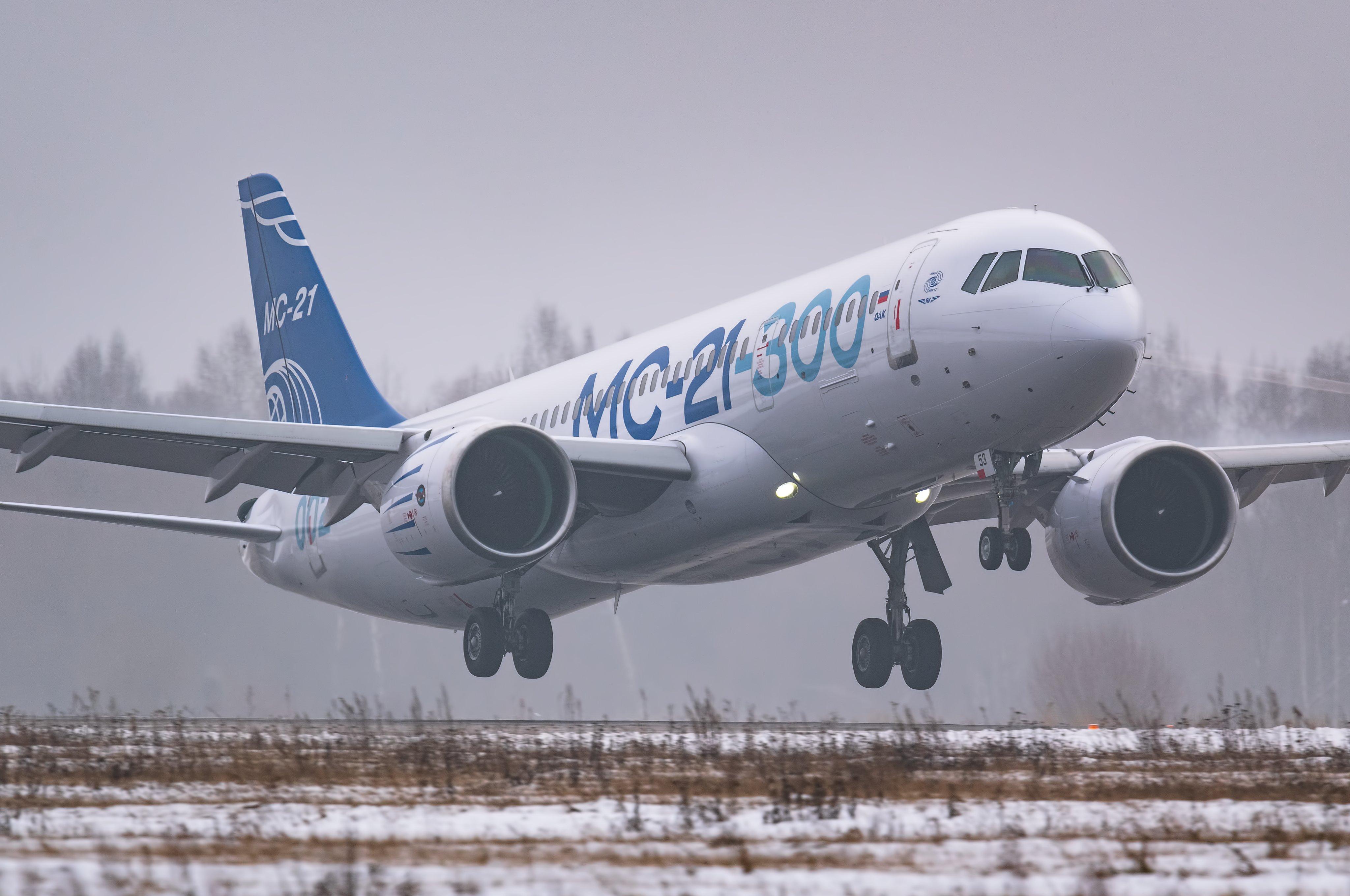
MOSCOW—A Russian government official has confirmed that COVID-19 restrictions have delayed the certification of the country’s new Irkut MC-21 narrowbody commercial airliner.
Local media cited minister of trade and industry Denis Manturov saying the issue of the Russian type certificate will slip beyond 2020.
“Taking into account all safety requirements, we should keep the initial certification schedule to the maximum in order to complete the main trials this year and to get the certificate and start the aircraft deliveries to our major customers next year,” Manturov said. He admitted that the schedule could slip further if the strict lockdown continues.
The certification trials of the MC-21-300 baseline variant powered by PW1400G engines started in autumn 2017. They were suspended for almost two weeks in early April because of the nationwide lockdown. An Irkut Corporation representative told Aviation Week that while tests had been resumed, the intensity of the flight program had nevertheless been reduced because of the continued travel restrictions.
The aircraft has made more than 300 test flights so far, according to airframer Irkut. This included flutter tests, engine and APU in-flight starting, engine failure take-off and landing, the minimum unstick tests, blind landing and most of the tests for angle-of-attack limits. The manufacturer is currently using four PW1400G-powered prototypes for the flight test program at present.
The total number of MC-21 firm orders is stuck at 175 aircraft, mostly from government-owned lessors. Russia’s largest airline Aeroflot is likely to be the launch operator with 50 of the type. According to the terms of the order, the first deliveries will be with PW1400 engines, while the airline can choose Russian engines beginning with the 26th aircraft.
The Russian government is facilitating the gradual Russification of aircraft components to minimize dependence on foreign suppliers. After the two United Aircraft Corporation (UAC) suppliers of composite parts—AeroComposit and ORPE Technologiya—were slapped by U.S. sanctions in 2018 and lost access to foreign fiber and prepregs, the MC-21 program was delayed by six months because of the need to find local substitutes.
Manturov said the center wing section manufactured from Russian-made composites has already been installed on the first serial MC-21 airframe. The domestically manufactured composite wing for the MC-21 is set to be sent for static tests at TsAGI Central Aerohydrodynamic Institute in July.
The substitution of the PW1400Gs with Russian-made PD-14 turbofans will be another step. According to Manturov, the first flight of the PD-14-powered prototype is now planned for the 2020 fourth quarter. This airframe is now at the final assembly line in Irkutsk. The two PD-14 turbofan engines were supplied by the United Engine Corporation (UEC) subsidiary Perm Motors. Irkut received the engines at its assembly plant in Irkutsk, Siberia in January.
The second test aircraft with PD-14 engines will join the trials in 2021. Manturov explained that Irkut will re-engine the first MC-21 prototype for this purpose after it completes the certification trials. “We will optimize the test program this way,” the minister said. According to regional authorities in Perm, two PD-14 engines for the prototype will be delivered to Irkut by year-end.





